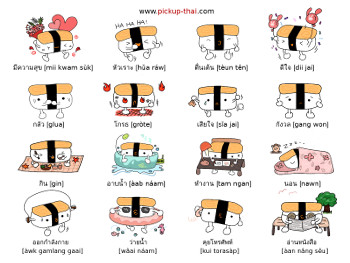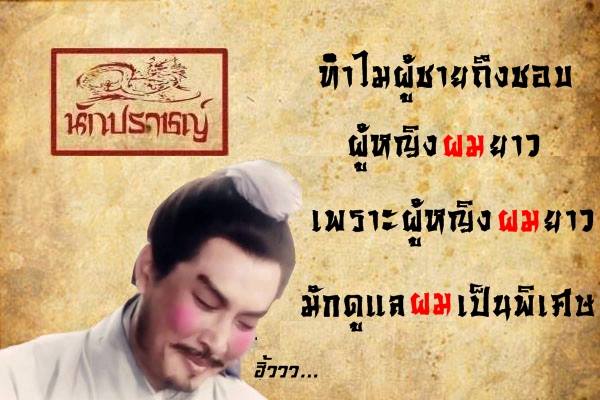
มาลอยกระทงเป็นคู่
[maa loy krathong pen kûu]
Celebrating the Loy krathong festival with a partner…
ทำร้ายจิตใจคนโสด
[tam ráai jìt jai kon sòde]
hurting single people’s feelings.
ปรับ 2,000 (บาท)
[pràp sǎwng pan (baht)]
Penalty 2000 Baht
[ – – – Vocabulary – – – ]
ลอยกระทง [loy grathong]: to celebrate the Loy Krathong festival
เป็นคู่ [pen kûu]: in pair / in a group of two
ทำร้ายจิตใจ [tam ráai jìt jai]: to hurt (one’s feelings)
คนโสด [kon sòde]: single person
ปรับ [pràp]: to fine
[ – – – The Story of the Thai Loy Krathong – – – ]
 Every year in November, Thai people celebrate the Loy Krathong festival by floating small boats made of banana leaves on a river, lake, or canal.…
Every year in November, Thai people celebrate the Loy Krathong festival by floating small boats made of banana leaves on a river, lake, or canal.…
Continue reading Loy Krathong Joke & Story


 Every year in November, Thai people celebrate the Loy Krathong festival by floating small boats made of banana leaves on a river, lake, or canal.…
Every year in November, Thai people celebrate the Loy Krathong festival by floating small boats made of banana leaves on a river, lake, or canal.…


 ร่มไม่ได้ถูกสร้างขึ้นมาเพื่อให้ฝนหยุดตก
ร่มไม่ได้ถูกสร้างขึ้นมาเพื่อให้ฝนหยุดตก






